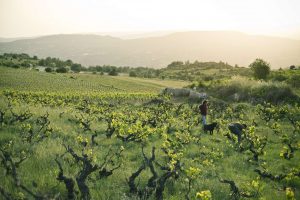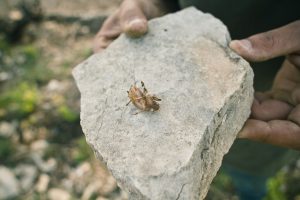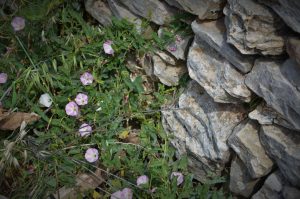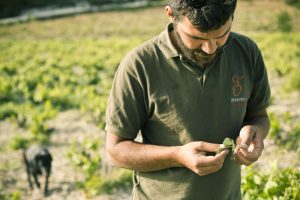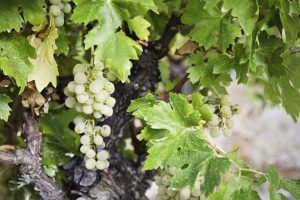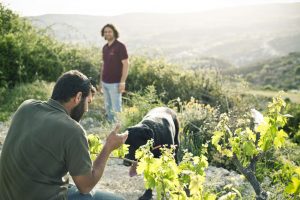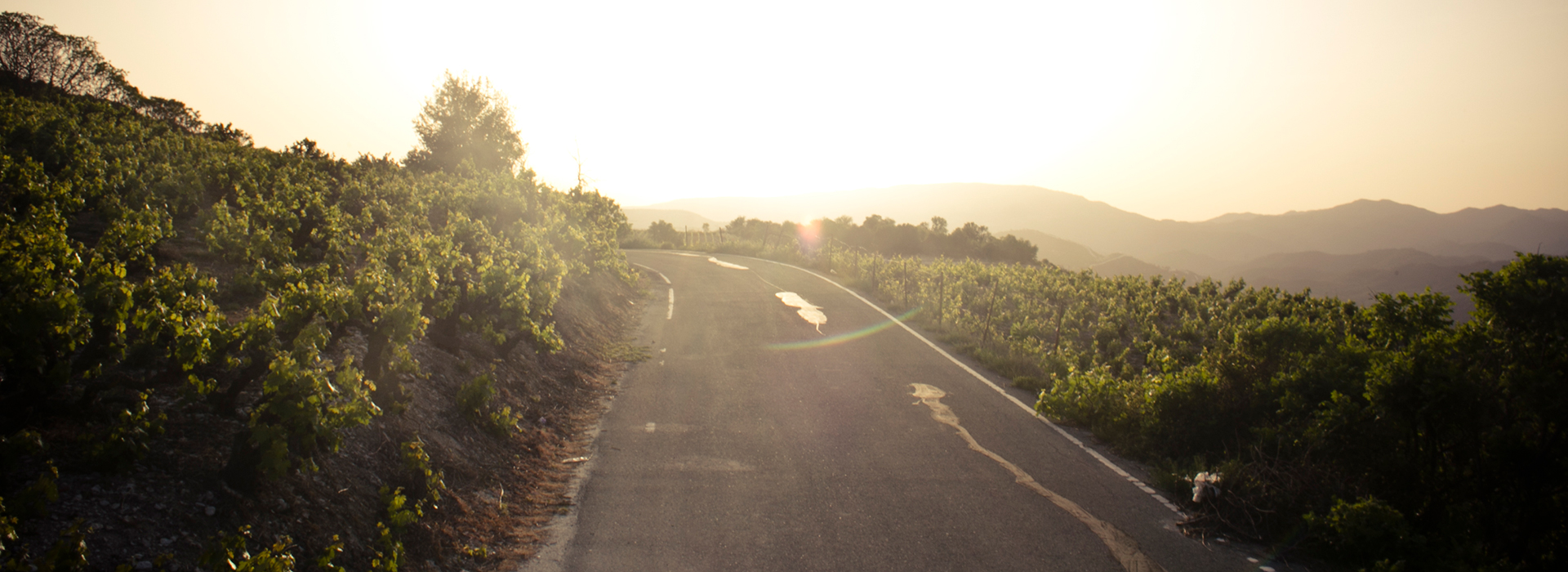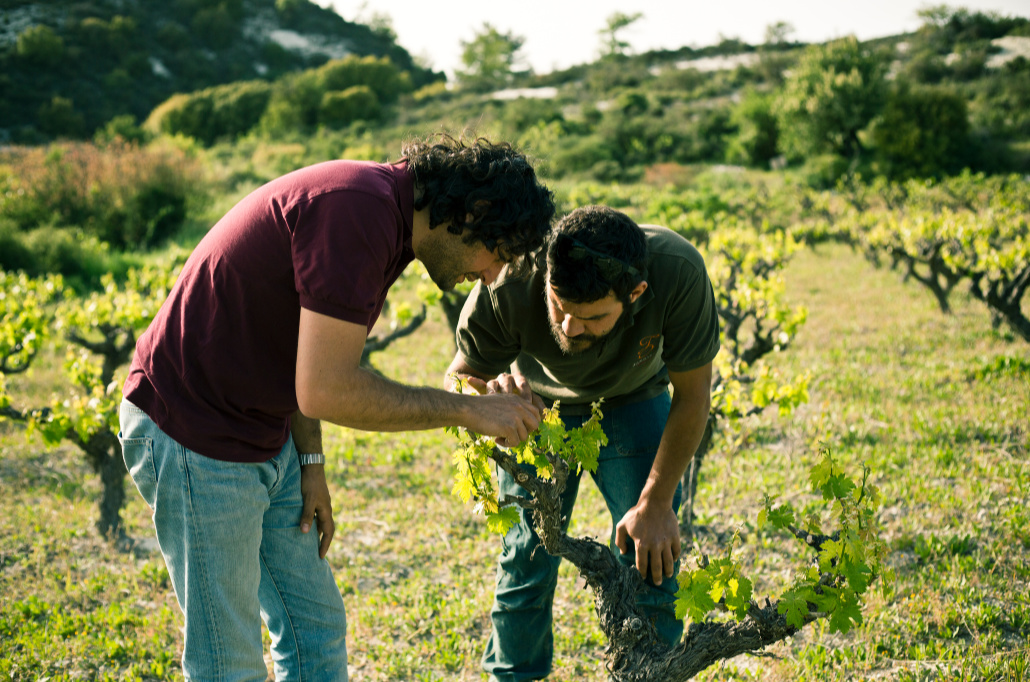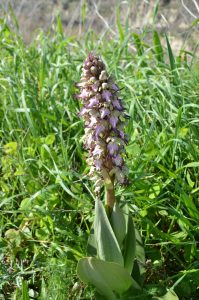An Organic Future
Organic Viticulture. A step towards sustainability
In 2019 our Xynisteri vineyard in Mandria, from which we produce the Zambartas Xynisteri Single Vineyard and our Margelina vineyard in Agios Nikolaos, were the first two vineyards which received official organic certification. The certification process took 3 years and was closely monitored by LACON, a certifying company for organic produce, complying with the Cyprus government’s and EU regulations.
Turning from conventional to organic viticulture takes a lot of effort and is a long road. However, we stronlgy believe in the philosophy of organic practices and its benefits for both human health and nature. We are turning all our vineyards organic the next few years, with the majority being already under LACON supervision.
Together with our dedicated viticulturalist Christodoulos Karaolis, Marcos explains why we take the organic approach and answers some key questions about ‘organic and sustainable’ winemaking.
Why Organic?
Marcos: ‘The reasons are straight forward and two-fold; for nature’s and human health. Nature is under great pressure when applying conventional high impact agriculture. Using chemicals to spray & fertilise and endless plowing bring a complete imbalance in the soil and biodiversity. Plants naturally flourish in a diverse natural surrounding where the different flora and fauna keep each other in balance. Once you strip a vineyard from this environment, you need increased, unnatural fertilisation to keep the vineyard productive. So, with organic viticulture you go back to creating an environment where nature self regulates with the helping hand of the viticulturalist.
What are the challenges of Organic Viticulture?
Christodoulos: ‘It is definitely an approach that needs more manpower! We do more frequent monitoring of the vines’ health, since we spray less and only with non-toxic and organically approved substances. The monitoring requires careful planning and a lot of time between the vines. Despite the time spent, it is still more difficult to fight disease. So, there is greater risk for ‘losing’ a vineyard’s harvest due to a disease that year. If other vineyards around the organic vineyard are still grown conventionally, this means you need to be extra careful, as you become more attractive for certain insects that can devastate your vineyard. Furthermore, instead of frequent tractor ploughing, which efficiently removes ‘weeds’, we cut the grass in the vineyards, at specific periods of the year, which is a more manual job. It is a good challenge though, especially if you see how the organic vineyard becomes stronger every year and we see increased biodiversity!
Marcos adds: ‘In winemaking the approach for our organic wines is of ‘minimal intervention’, which means using native yeasts and applying less fining substances for clarity. So, in the cellar there is increased risk of spoilage because the native yeast is allowed to ferment, and less oenological substances are available to ‘adjust’ the wine if something goes wrong down the track. As our current organic wines are ‘Single Vineyard’ wines, there is no chance of blending even to attain yearly consistency – it is one shot only!’
What positive changes did you see in the vineyard?
Christodoulos: ‘The vines are definitely healthier as the soil becomes richer. There is revived biodiversity of native flora and fauna, which is great to see. As we only plow once a year and let cover crops grow, in spring time the vineyard turn into a beautiful pallet of colours. We have seen native orchids and other flowers, herbs and an increased population of bees and other insects.
Marcos: ‘I would add that we do see increased flavour of the grapes, which, from an enological point of view, is the ultimate outcome.’
In what other ways do you enhance sustainability?
Christodoulos: ‘We apply an approach of minimum water use, which is very important in a dry island like Cyprus. Water is scarce and will probably become more scarce in the future. Luckily vines are incredibly strong with long roots, so dry farming is possible. Besides that we leave the cover crops for increased bio-diversity and make an effort to restore old traditional stone walls. The stone walls are an ideal hideaway for larger reptiles, as the stones reflect heat from the sun in cold days and the spaces between the stones provide shade in hot days!
Marcos: ‘Additionally, we generate a large chunk of our winery’s electricity from photovoltaics and have smart winery insulation. We avoid unnecessary packaging. Also, we are happy that we sell a considerable amount of wines from the winery, so there is lower carbon output for transportation.’
How do you see the future of organic argriculture?
Marcos: ‘The future for organic viticulture and wines is bright in my opinion. Firstly, it will grow regardless of the consumers’ response because for many small wineries like us, it is a personal conviction and philosophy of life. Internationally the consumers’ demand for organic produce is already growing fast and I do believe this trend will come to Cyprus. So of course, if the consumers demand more, more wineries will follow!’
Finally, what does the organic certificate guarantee the consumer?
Marcos: ‘What you can be assured of when you buy an organic certified wine, is that there has absolutely been no use of toxic substances in protecting the vines. This means no chemical weed killers or chemical spraying for disease. This is what the official certification guarantees. On top of that, in our case, the wine has been produced with more respect for nature, and with minimal intervention winemaking too. For us it results in a more pure expression of the terroir. The wine becomes a real synergy between nature and human creativity.’
